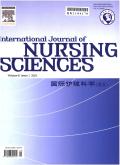A Mindfulness Breast Care App to reduce body image distress and stigma for breast cancer survivors: Development and preliminary quality assessment
IF 3.1
3区 医学
Q1 NURSING
引用次数: 0
Abstract
Objectives
This study aimed to develop and preliminarily assess the quality of a Mindfulness Breast Care (MBC) App to reduce body image distress and stigma among breast cancer survivors (BCSs).
Methods
The development process of the MBC App involved: 1) establishing a research group; 2) determining of the content of the MBC App based on Mindfulness-Based Cognitive Therapy and 3) technical exploitation and maintenance. A mixed-methods study was conducted. We selected ten BCSs by a convenience sampling method. After using the APP for three months, five assessed the quality using the Mobile App Rating Scale: User Version (uMARS) and another five were interviewed for process evaluation.
Results
The MBC App was developed with three modules: 1) Library to provide health education information on body image, stigma, mindfulness, recovery and etc; 2) Mindfulness Yoga to offer 12 Hatha yoga videos for daily practice; and 3) Mindfulness Practices to have 12 sessions of mindfulness videoconferences. Based on the uMARS data, the MBC App received high ratings for functionality (4.10 ± 0.34), aesthetics (3.93 ± 0.55), information quality (4.10 ± 0.72), and perceived impact (4.03 ± 0.96), as well as moderate ratings for engagement (3.72 ± 0.94) and subjective quality (3.87 ± 0.77). Participants indicated that the MBC App provided reliable knowledge, information, and emotional support. Recommendations from participants included categorizing knowledge in the Library Module, recording videoconferences of mindfulness practice, and adding discussion sessions in the videoconference. Afterward, we optimized the MBC App to enhance the user experience accordingly.
Conclusions
The MBC App offers online mindfulness interventions specifically for BCSs in China. The preliminary quality assessment indicates that the MBC App may be a promising tool for delivering mindfulness interventions to BCSs.
正念乳房护理应用程序减少乳腺癌幸存者的身体形象困扰和耻辱:开发和初步质量评估
本研究旨在开发并初步评估正念乳房护理(MBC)应用程序的质量,以减少乳腺癌幸存者(BCSs)的身体形象困扰和耻辱感。方法MBC App开发过程涉及:1)成立课题组;2)基于正念认知疗法的MBC App内容确定,3)技术开发与维护。采用混合方法进行研究。我们采用方便抽样的方法选择了10个bcs。在使用该APP三个月后,5个应用程序使用移动应用程序评分量表:用户版本(uMARS)进行质量评估,另外5个应用程序进行流程评估。结果MBC App开发了三个模块:1)图书馆,提供身体形象、耻感、正念、康复等健康教育信息;2)正念瑜伽,提供12个哈达瑜伽视频供日常练习;3)正念练习,进行12次正念视频会议。根据uMARS数据,MBC App在功能(4.10±0.34),美学(3.93±0.55),信息质量(4.10±0.72)和感知影响(4.03±0.96)方面获得了较高的评分,在参与(3.72±0.94)和主观质量(3.87±0.77)方面获得了中等评分。参与者表示,MBC App提供了可靠的知识、信息和情感支持。参与者的建议包括在图书馆模块中对知识进行分类,录制正念练习的视频会议,并在视频会议中增加讨论环节。随后,我们对MBC App进行了优化,以提升用户体验。MBC应用程序专门为中国的bcs提供在线正念干预。初步的质量评估表明,MBC应用程序可能是向bcs提供正念干预的有前途的工具。
本文章由计算机程序翻译,如有差异,请以英文原文为准。
求助全文
约1分钟内获得全文
求助全文
来源期刊

International Journal of Nursing Sciences
Nursing-Nursing (all)
CiteScore
6.10
自引率
2.60%
发文量
408
审稿时长
25 days
期刊介绍:
This journal aims to promote excellence in nursing and health care through the dissemination of the latest, evidence-based, peer-reviewed clinical information and original research, providing an international platform for exchanging knowledge, research findings and nursing practice experience. This journal covers a wide range of nursing topics such as advanced nursing practice, bio-psychosocial issues related to health, cultural perspectives, lifestyle change as a component of health promotion, chronic disease, including end-of-life care, family care giving. IJNSS publishes four issues per year in Jan/Apr/Jul/Oct. IJNSS intended readership includes practicing nurses in all spheres and at all levels who are committed to advancing practice and professional development on the basis of new knowledge and evidence; managers and senior members of the nursing; nurse educators and nursing students etc. IJNSS seeks to enrich insight into clinical need and the implications for nursing intervention and models of service delivery. Contributions are welcomed from other health professions on issues that have a direct impact on nursing practice.
 求助内容:
求助内容: 应助结果提醒方式:
应助结果提醒方式:


